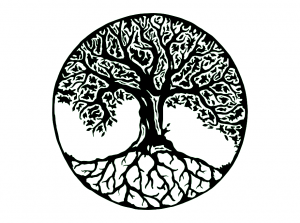
Once we have developed some skill in following the Five Precepts, the next step is to continue making progress on the path by learning how to deal with the Five Mental Hindrances and their relationship to concentration and meditation.
What are The Five Hindrances? Let’s begin with an analogy:
“There are five impurities of gold impaired by which it is not pliant and wieldy, lacks radiance, is brittle and cannot be wrought well. What are these five impurities? Iron, copper, tin, lead and silver.
But if the gold has been freed from these five impurities, then it will be plaint and wieldy, radiant and firm, and can be wrought well. Whatever ornaments one wishes to make from it, be it a diadem, earrings, a necklace or a golden chain, it will serve that purpose.
Similarly, there are five impurities of the mind impaired by which the mind is not pliant and wieldy, lacks radiant lucidity and firmness, and cannot concentrate well upon the eradication of the taints (asava). What are these five impurities? They are: sensual desire, ill-will, sloth and torpor, restlessness and remorse, and sceptical doubt.
But if the mind is freed of these five impurities, it will be pliant and wieldy, will have radiant lucidity and firmness, and will concentrate well upon the eradication of the taints. Whatever state realizable by the higher mental faculties one may direct the mind to, one will in each case acquire the capacity of realization, if the (other) conditions are fulfilled.” — AN 5:23
Venerable Nyanaponika Maha Thera, in his booklet The Five Mental Hindrances and Their Conquest: Selected Texts from the Pali Canon and the Commentaries (1994 Kandy: Buddhist Publication Society, Wheel Series 26), starts off in his introduction with some words that will sound familiar to us:
Unshakable deliverance of the mind is the highest goal in the Buddha’s doctrine. Here, deliverance means the freeing of the mind from all limitations, fetters and bonds that tie it to the wheel of suffering, to the circle of rebirth. It means the cleansing of the mind of all defilements that mar its purity; the removal of all obstacles that bar its progress from the mundane (lokiya) to the supramundane consciousness (lokuttara-citta) ─that is to Arahatship.
Many are the obstacles which block the road to spiritual progress, but there are five, in particular, which, under the name of hindrances (nivarana), are often mentioned in the Buddhist scriptures.
The Five Mental Hindrances are:
1. Sensual desire
2. Ill-will
3. Sloth and torpor
4. Restlessness and remorse
5. Skeptical doubt
They are called hindrances because they hinder and cloud the development of the mind (bhavana). They can hinder right concentration so that the mind remains bound within the mundane state and blocked from attaining access to supramundane states. The mind which demands nourishment based on fetters to mundane states will thereby be tied to attachments and it will be difficult to be delivered from them.
Concerning nourishment, Ven. Nyanaponika says, again quoting the texts:
Just as monks, this body lives on nourishment, lives dependent on nourishment, does not live without nourishment—in the same way monks, the five hindrances live on nourishment, depend on nourishment, do not live without nourishment. (SN 46:2)
Concerning nourishment of sensual desire, the text says:
“There are beautiful objects; frequently giving unwise attention to them—this is nourishment for the arising of sensual desire that has not arisen and the nourishment for the increasing and strengthening of sensual desire that has already arisen.” (SN 46:51)
Concerning nourishment of ill-will, the text says:
“There are objects causing aversion; frequently giving attention to them—this is the nourishment for the arising of ill-will that has not yet arisen, and for the increase and strengthening of ill-will that has not already arisen.” (SN 46:55)
Concerning the nourishment of sloth and torpor, the text says:
“There arises listlessness, lassitude, stretching of the body, drowsiness after meals, mental sluggishness; frequently giving unwise attention to it—this is the nourishment for the arising of sloth and torpor that have not arisen and for the increase and strengthening of sloth and torpor that have already arisen.” (SN 46:51)
Concerning restlessness and remorse, the text says:
“There is unrest of mind; frequently giving unwise attention to it—that is the nourishment for the arising of restlessness and remorse that have not yet arisen and strengthening of restlessness and remorse that have already arisen.” (SN 46:51)
Concerning the nourishment of doubt, the text says:
“There are things causing doubt; frequently giving attention to them—that is the nourishment of the arising of doubt that has not yet arisen and strengthening of doubt already arisen.” (SN 46:51)
We all know sensuous desire, ill-will, sloth and torpor, restlessness and worry, and skeptical doubt from our own experience. For most of us, they appear daily as bad companions who hang around and will not go away. This is one of the worst manifestations of ignorance, and if we do not want to be ignorant in such a way—ignorant due to just not knowing—there is a proven way for making each hindrance go away in due turn.
The conquest of the Five Mental Hindrances can be achieved by starving them—giving them nothing to feed on—through what Ven. Nyanaponika calls “de-nourishment:” depriving the hindrance of energy to feed upon.
“One whose heart is overwhelmed by ill-will . . . by sloth and torpor . . . by restlessness and remorse . . . by skeptical doubt will do what he should not do and neglect what he ought to do. And through that, his good name and his happiness will come to ruin.
But if a noble disciple has seen these five as defilements of the mind, he will give them up. And in doing so, he is regarded as one of great wisdom, of abundant wisdom, clear-visioned, well endowed with wisdom. This is called ‘endowment with wisdom.’” — AN 4:61
A final observation is that it is a good thing we have the Five Precepts to help balance the Five Hindrances, otherwise, without them, who knows what potentially destructive energies could break loose and cause havoc in our minds.
Related features from BDG
The Four Sublime States
The Detached View of One Who Knows
On Eradicating Unwholesome Mental States












